Voodoo: for the record
Born from the junction between the "Ewe" and "Fon" deities with the traditional cults of the Yoruba gods, vodoun is much more than a religion. It is a way of life, before being a religious practice in which the followers adore a creator god named " Mahou " which means in the Fon language " That one cannot surpass".
But unlike other religions, vodoun also highlights other gods, inferior to the almighty God " Mahou ". These gods, clothed with particular authorities and powers, intercede on behalf of humans with the supreme god. The god of iron (Ogoun), the god of smallpox (Sakpata), the goddess of water (Mami Wata) are some examples.
The deities of Vodun are actually deeply associated with natural life forces. It is from the latter that they derive their powers and their powers which, although they are difficult to understand on a human scale, are very useful to men.
If the vodun is anchored and built around supernatural and invisible forces, it should be noted that it has nothing to do with black magic or witchcraft.
Au Bénin, le 10 janvier de chaque année est célébrée la national vodun day.
What’is the voodoo?
You can only fully understand vodoun if you master its concept. If its first syllable “ Vo ” means “ To make yourself comfortable or not to surround yourself with prejudice ”, the second “ Doun ” means “ To seek, to extract, to draw ”.
The two definitions put together, vodoun means concretely " To seek harmony, to draw from the invisible those things that men need to be happy and flourish in the visible world ".
Much more explicitly, voodoo is not just about everything that has to do with the invisible. It is an art of living by which man tries to dominate and domesticate forces whose explanation goes beyond his understanding. In addition to capturing these forces, he makes sure to master them to have better control over his world and over the natural phenomena that are divine.
For example, we can talk about death. In the literal sense, anyone who dies becomes a vodoun. It does not mean that this person will be adored. Whoever dies makes the journey to an unknown world, a divine space. In fact, any phenomenon like death that is mysterious, that goes beyond the limits of the imagination is Vodoun.
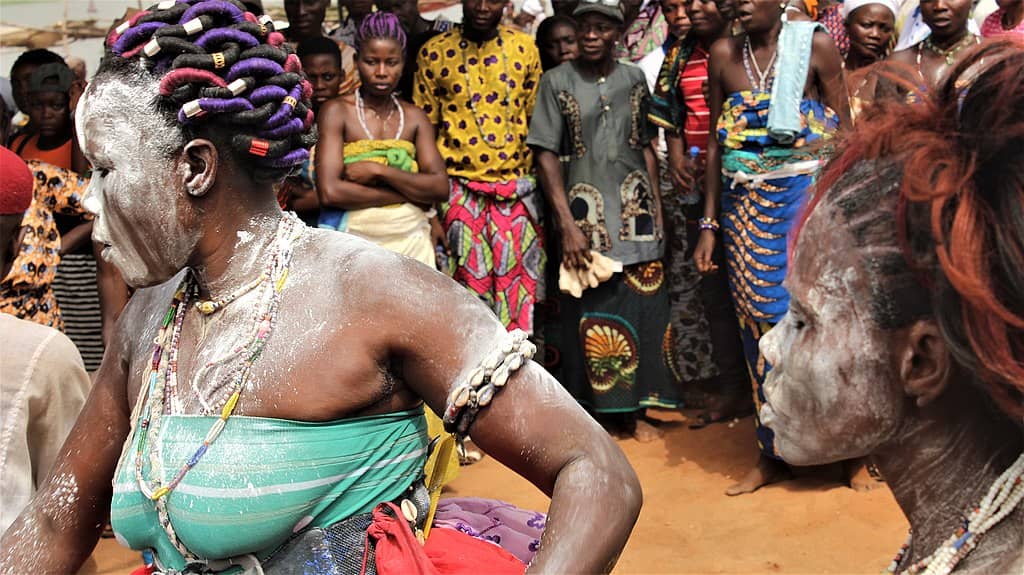
Voodoo gods in Benin
Vodoun responds to the four divinatory elements of the cosmos: earth, air, water and fire. A deity as well as derivatives are associated with each of these elements. There are hundreds of them, of which here are the most emblematic:
- Sakpata (the earth god who protects from incidents, helps to have children, work…) ;
- Oro (the god of the air who favors peace, fights diseases, spirits linked to witchcraft…) ;
- Tohossou (the god of water who helps to find the way to happiness);
- Hêviosso (the god of fire or thunder who notably allows to appease the anger of thunder, calls the rain, allows to feed the world…) ;
- Egun (the spirit of death whose role is to protect the living from evil spirits, bring health and blessings, ensure the protection of forests…) ;
- Zangbéto (the guardian of the night who ensures public safety, establishes order, protects forests and woods against destruction…)…
- Legba (god of virility and protector), Caleta, Dan (rainbow serpent) and Gu (god of iron) are other examples of key deities that can be added to this list.
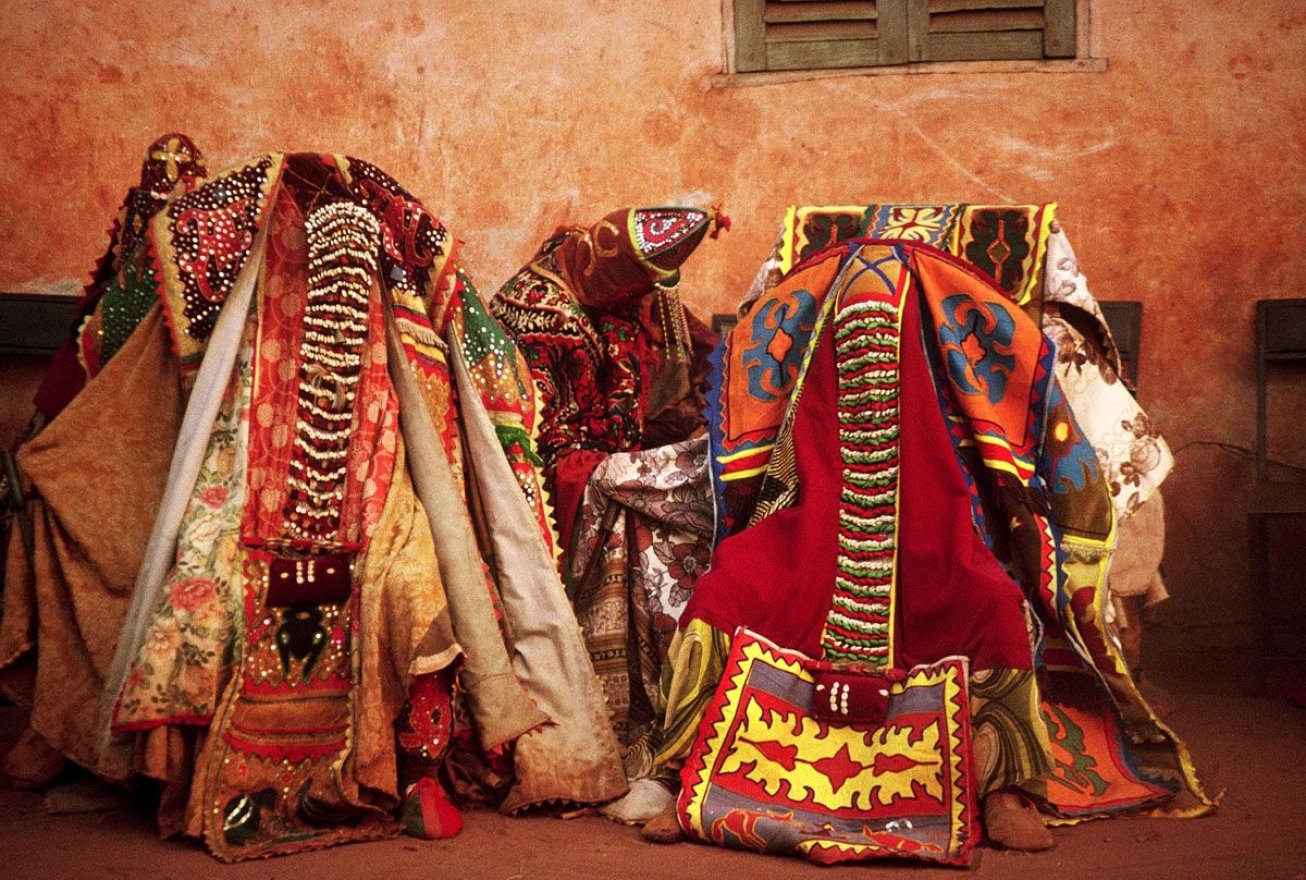
Ouidah : the emblematic seat of the vodoun culture
We cannot talk about vodoun in Benin without referring to the territories in which it developed before spreading around the world. If Ouidah is a religious and syncretic city par excellence, it is above all the seat of vodoun in Benin.
Many vestiges and symbols of the Voodoo culture are present in this city considered the spiritual city of Benin. The ones you shouldn't miss if you really want to know more about vodoun are:
- The sacred forest of Kpassé with all its mysteries ;
- The convent of Dagbo Hounon, the supreme leader of the Vodoun cult;
- Agadja Lègba ;
- The Zangbéto convent…
Do not forget to ask your tourist guide to also show you around the other sacred places dedicated to the Voodoo cult, the various Voodoo convents, the museum of the history of Ouidah. The slave trade being inseparable from the key era of vodoun, also consider following the route of slavery to learn more about the vodoun rituals associated with it.
A detour to Abomey, the historic capital of voodoo
It was in Abomey, more precisely in the 17th century, that vodoun was born. If it was the only culture and religion practiced, it is also thanks to him that the kingdom of Danhomè flourished. Vodun has developed into a real cultural system.
Eternally the historic capital of vodoun, Abomey still hosts many attractions and cultural riches of vodoun that you absolutely must visit. Here are a few:
- Royal palaces where we find Vodoun cultural objects, royal seats, statuettes, bas-reliefs… ;
- Vodoun palaces and temples;
- Sacred places
- Remains of emblematic kings…
In Abomey, you will learn a lot about the culture of vodoun and get a better idea of what it was like a few centuries ago. The detour will be exciting.
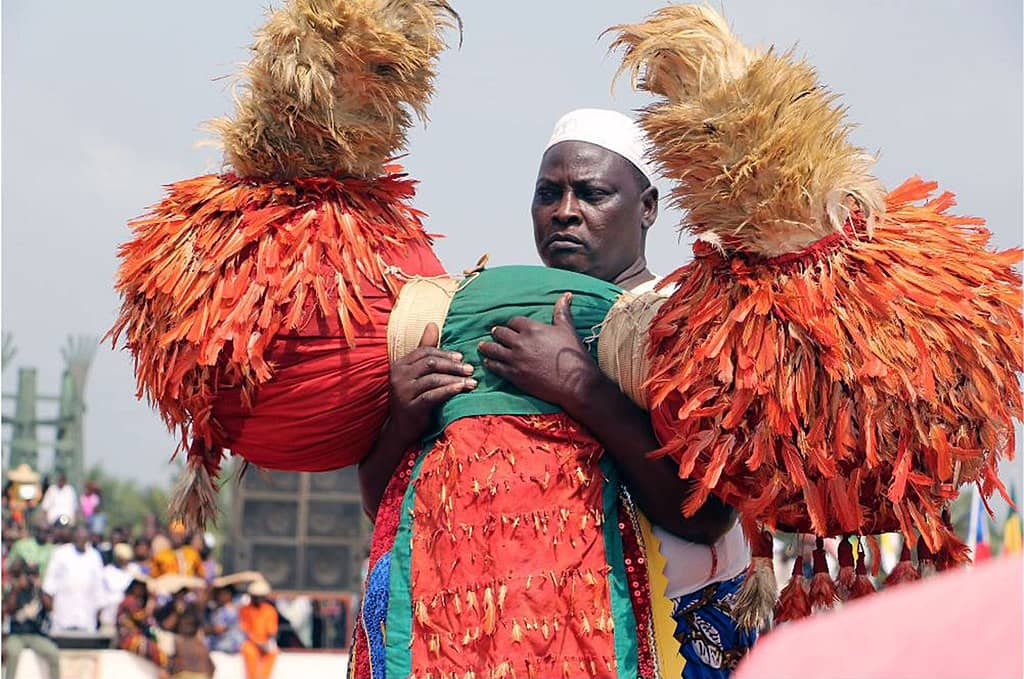
Other emblematic vodoun sites in Benin
A true cultural and religious system in Benin, vodoun is present in almost all spheres of life in the country. In addition to the previous cities, some destinations are worth a visit because of their weight and influence in the practice and animation of the Beninese Vodoun cultural landscape.
So let's make a forced stopover in Porto-Novo, an unmissable destination for vodoun. The administrative capital of Benin will seduce you with its jewels in honor of the vodoun culture. These include its museums and royal palaces, the world headquarters of the Zangbéto kpakliyahu, the vodoun temples, the Jardin des Plantes et de la Nature…
Let's leave Porto-Novo, direction Zakpota where we will discover the Vodoun Miétonou Institute. Research center in endogenous, cultural and touristic development, it is the first institute of vodoun in the world. In this town, you can also visit vodoun temples and the vodoun basilica (under construction).
Other tourist sites dedicated to the Voodoo cult are present in other cities of the country, whether in the north, center or south. Going to discover vodoun in Benin is an endless journey that will not leave you indifferent. This will immediately change your perception of vodoun, the concept of which is not just a religion or mysterious things.












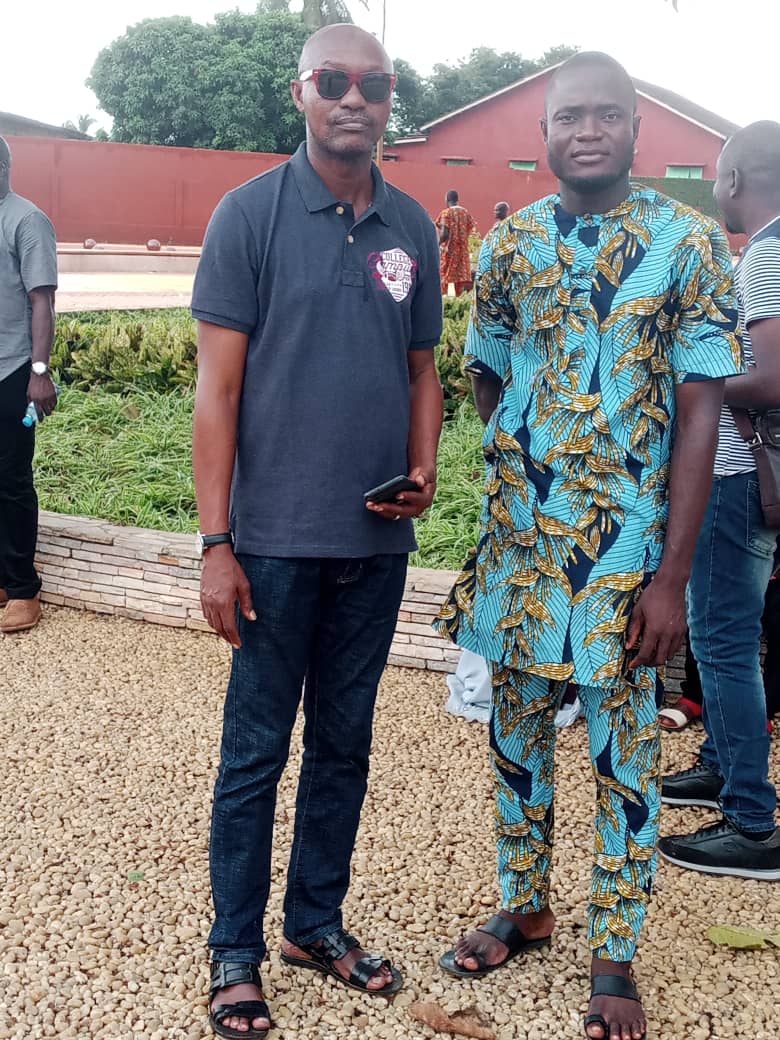
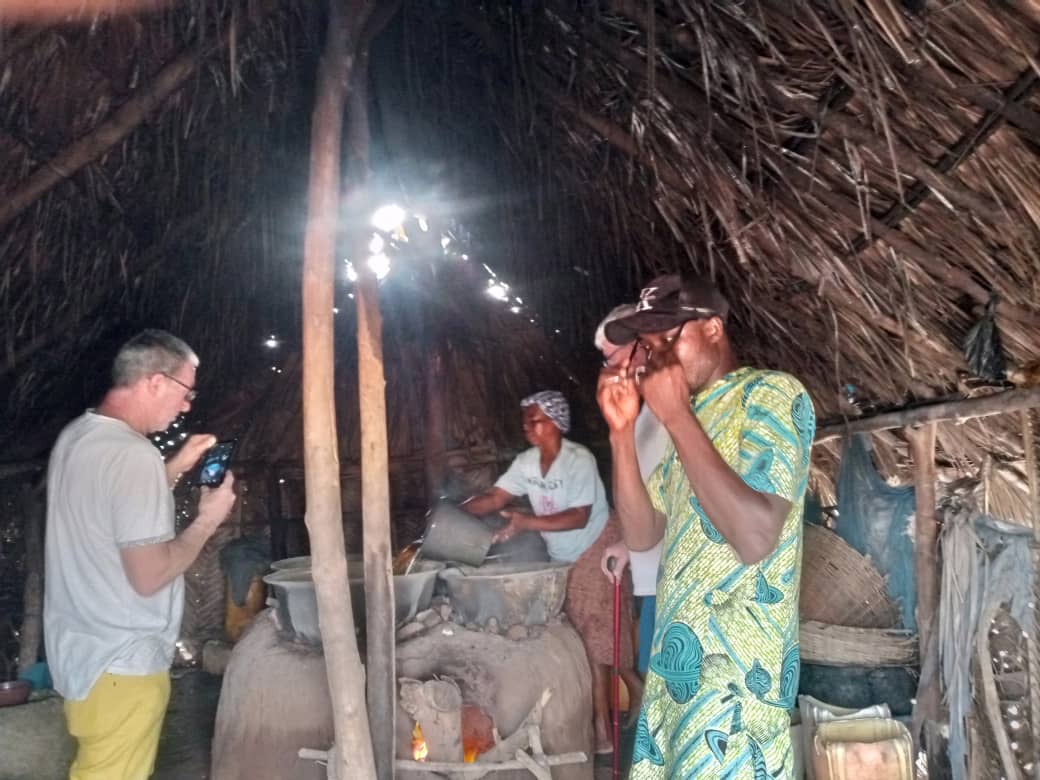
20 Avis
• A discovery of Benin from every angle
• Authentic encounters with the population
• Memorable canoe crossings
• A circuit combining solidarity and discovery of Benin
• Participation in local development actions
• Authentic encounters with the population
Add a comment
Your email address will not be published. Mandatory fields are marked with *